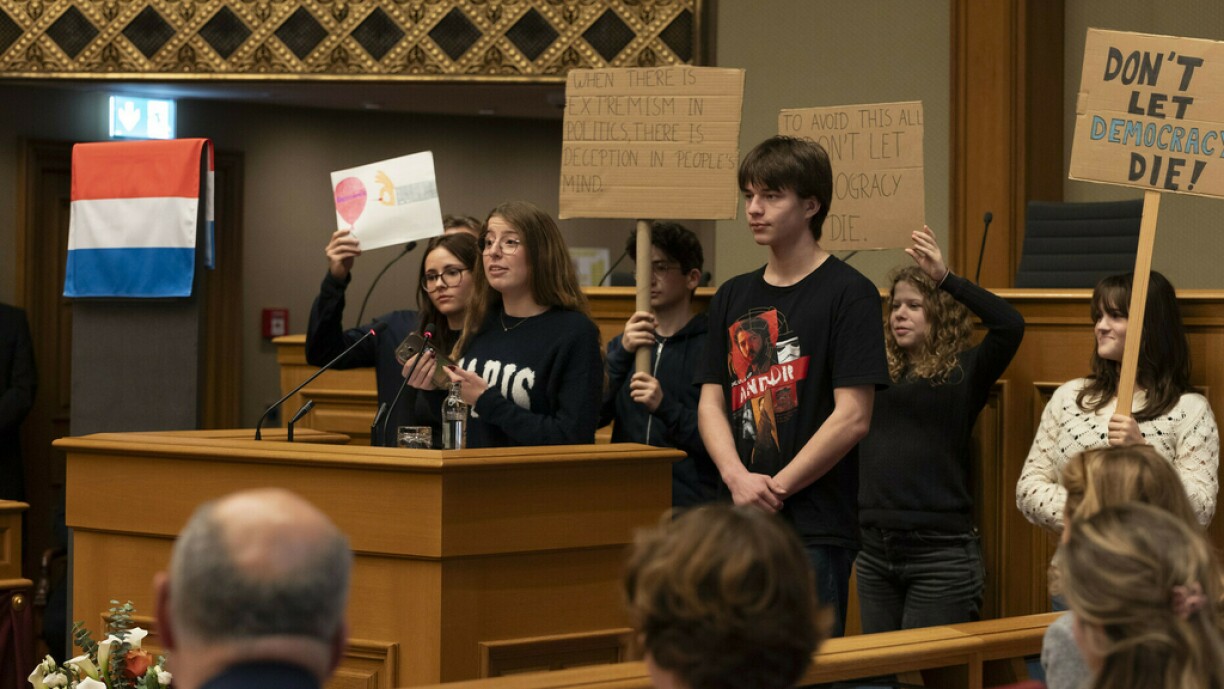
During the war, Luxembourg’s Parliament had been abolished, and the event served as a reminder of how quickly a democratic system can disappear. Chamber President Claude Wiseler of the Christian Social People’s Party (CSV) warned that the dismantling of democracy is rarely abrupt but can occur gradually over time. He described it as a process that erodes freedoms, normalises repression of political opponents, and dehumanises certain groups, a process that people often grow used to without realising how difficult it will later be to reverse.
The commemoration invited reflection on what happened to Parliament at the time and how Luxembourg’s democracy collapsed within a matter of months. Historian Fabio Spirinelli, head of the parliamentary history service, explained that the German invasion created a situation not foreseen by the Constitution: the government and Grand Duchess fled into exile, leaving the country without executive authority. Spirinelli explained that, although this possibility had been discussed internally in the months leading up to the invasion, no clear instructions were left behind.
This placed the constitutional order under enormous strain. Wiseler stressed the importance of examining how democracy can defend itself against similar threats today. He posed the question of how Luxembourg’s checks and balances would respond if a democratically elected government ever sought to weaken or dismantle the system, and how to ensure that free and fair elections could still take place five years later.
The ceremony formed part of a wider project exploring the history of the Chamber during the Second World War, which includes a series of online articles. A class from Lycée Aline Mayrisch also took part in the event, warning of the dangers that can undermine democracy. The students reminded those present that democracy entails shared responsibility, can disappear quickly, and that rebuilding it takes time.
After Luxembourg’s liberation, it took a full year for parliamentary democracy to be fully restored.
To mark the occasion, Parliament also unveiled a commemorative plaque honouring the first post-war elections. The inscription serves as a reminder that democracy is a fragile achievement that must be continually protected, though its exact placement within the Chamber has not yet been specified.